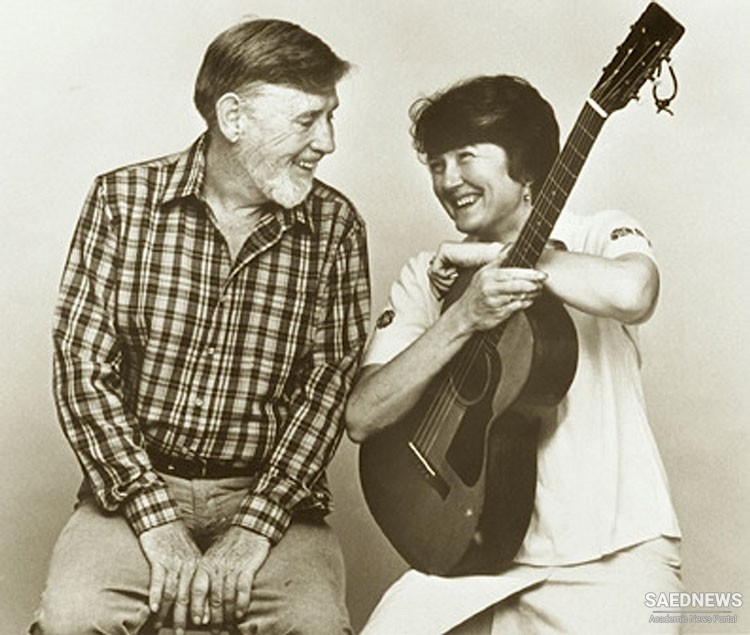Lloyd was working on his book Come All Ye Bold Miners: Ballads and Songs of the Coalfields (1952) and now found little time for Lomax, but MacColl was a different story. “My growing disenchantment with the theatre I had helped to build and my dissatisfaction with my work as a writer coincided with the arrival on the scene of Alan Lomax, an event which was to produce a major upheaval in my life,” MacColl later recorded in his 1990 autobiography, Journeyman.
Having met Lomax at BBC, MacColl came under the American’s spell: “In the course of the next year or so I spent more and more time listening to Alan’s enormous collection of tapes, to songs from the Americas, Africa, India, Italy, Spain and Britain, arguing, discussing, learning, and trying to acquire Alan’s world-view of this extraordinary corpus of songs and stories… . Alan has amazing energy. Everything is done at breakneck speed.” Lomax also got MacColl and Lloyd together for the first time, a fateful meeting.
Lomax, MacColl, and Lloyd were all involved in Communist party–related activities, which were more open in Great Britain than in the United States, for anticommunism was much less lethal in the former. Lomax, for example, took part in a musical tribute to Joe Vaughan, Communist mayor of Shoreditch, in 1951, where he joined MacColl in singing “One Big Union.” Party members were involved in the first People’s Festival Ceilidh in Scotland in 1951, which was associated with the simultaneous establishment of the School of Scottish Studies. Hamish Henderson’s work with the school led to collecting songs from traditional singers Jeannie Robertson and the Stewart family of Blairgowrie.
Meanwhile, in London, John Hasted, who taught Physics, began directing the London Youth Choir, formed by the London Labour Movement. Hasted was steeped in American labor/radical songs, particularly those by the Almanac Singers and Woody Guthrie, which helped shape his music and politics. He would play an active role in the British folk revival. Party members were involved in the first folk music festival, held in Sidmouth, Devon, in 1954.
That same year party members Lesley and Harry Boardman launched Manchester’s first folk club. “As in the United States, Party branches were beginning to seize on the power of progressive songs not only to build solidarity, but to make social, political meetings, and picket lines more lively,” Gerald Porter has explained. Both traditional and new labor/radical songs were shared. Topic Records, launched by the Workers’ Music Association in 1939, by the early 1950s, with Bert Lloyd as artistic director, was issuing an eclectic mix of radical music, some from Eastern Europe, classical as well as folk.
Ewan MacColl performed workers songs and “The Ballad of Stalin,” while Patrick Galvin did Irish tunes. MacColl and Lloyd also recorded albums of sailors’ songs. Through contactsin the United States, particularly producer Kenneth Goldstein, American performers appeared on the Topiclabel and British singers were heard in the United States. Not all of these records had political/labor themes, such as Lloyd’s anthology of industrial folksongs, The Iron Muse (1956), but left politics were influential in shaping the selections on both sides of the Atlantic. Topic would continue to issue records in England throughout the century.


 The Fifties: Great Britain
The Fifties: Great Britain














































